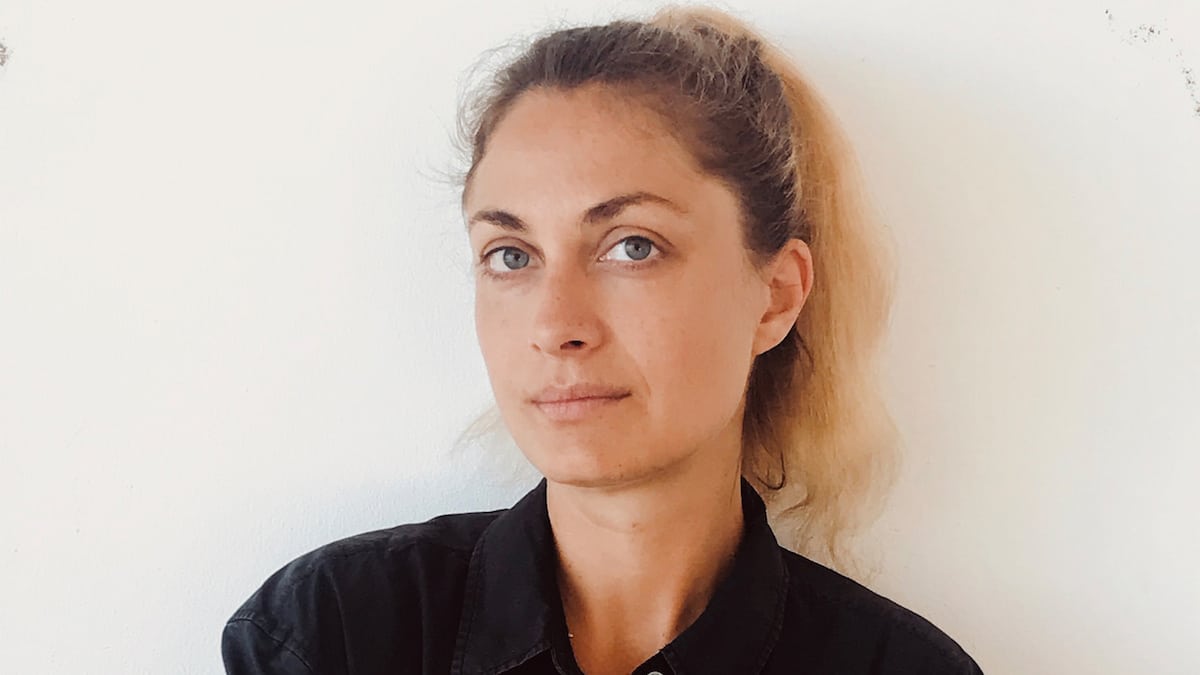
The Mustang premiered at the Sundance Film Festival. It was appropriate since Sundance founder Robert Redford was an executive producer, due in part to his activism for horses (see also The Horse Whisperer).
Based on the real program where prison inmates learn to train wild mustangs for auction, The Mustang stars Mathias Schoenarts as Roman Coleman, in jail for an assault that left his ex-wife permanently disabled.
Director Laure de Clermont-Tonnerre, who also cowrote the script, spoke with Monsters and Critics at Sundance about The Mustang. Everyone can see The Mustang in theaters March 15.
M&C: Did Robert Redford become involved because he’s an activist for horses?
Laure de Clermont-Tonnerre: Absolutely. I went to the screenwriting lab in 2015. He came to me and he said we had something in common and we loved horses. I was like wow, I have something in common with Robert Redford. That’s huge.
We sat down and he’s like, “I know what you want to talk about because I know this program really well. I am myself a real advocate of the environment and preservation of those wild horses.
“So I also have two mustangs that I auctioned in prison. So this story is close to my heart and I’d like to help because I feel that it’s an important message and an important story to tell.”
M&C: Do you believe a human can also be a wild mustang?
LDC: Yes. Absolutely. It’s really about nature. I think the horse helps you to find your own nature. That was kind of the link between the two roles.
M&C: Would that imply that anger and aggression is not a natural state?
LDC: It’s natural. It’s almost chemical. I feel like violence is a chemical reaction and what triggers violence? That was also the focus. What’s the psyche and what’s the feeling around violence and anger? Why don’t you control yourself?
Yeah, is it freedom? Is it to control yourself and to fit in society or be a slave of your own passions. I think freedom is an internal state of mind, whether it’s not physical or psychological but it’s just to be able to control your emotion and control yourself in order to be at peace.
So it’s just a peaceful state of mind that a man should actually find. Violence and anger are eruptive and it’s something that’s overwhelming. That’s, I feel, where you can make mistakes and have stupid behavior.
M&C: Were any of the inmate characters based on some of those real inmates?
LDC: Yes. To deepen the story and characters, I spent a lot of time in Nevada Prison to meet inmates there but also in San Quentin. I met people with much more anger and violence issues.
Also, I was very focused on the domestic violence, domestic abuse, physical violence. It’s very different to have a gun in your hand and kill someone than just to physically beat up someone to death or until they’re handicapped. It’s a very popular crime, a very common crime.
I would say I met a lot of men that actually said, “I couldn’t control myself and I didn’t have the words and I didn’t have the education to express myself, so my hands spoke for me.”
There’s something liberating about beating up, the physical violence, the physical reaction that’s kind of healing. And also a lot of those men, when they grew up, associated violence and virility and felt that they were powerful because of violence.
So all those things lead to being enveloped and being in rage, and not being able to control this violence that we all have in us. That’s something that we all have and it belongs to us. That was something I needed to understand.

There’s one man who really inspired me more than the others. Specifically he said something that was very important for me. He said, “I didn’t know I was a good person. I thought I was a monster because no one liked me.”
He also had a story about bad parenting, abandonment, abuse as a kid so he grew up thinking he was a monster. He was like, “So I did act like a monster because I thought and I knew that I was not a likable person.”
In prison, because he went through different therapy after years and years of closed off and self-imprisonment, he finally opened himself and discovered that he was capable of love and empathy.
He said, “I wish I had known that. I wish I had before killing my wife that I was capable of love and empathy, that I was capable of controlling myself and just being lovable.” It’s so heartbreaking to hear that.
He said discovering himself through talking, through repairing his soul, through reflection on himself and being able to unfold and to tame the demons, he said, “Yeah, I had no idea I was capable of connecting with people.”
M&C: Did you and Mathias collaborate on his look with the shaved head, goatee and tattoos?
LDC: Yes. He wanted to have a look and change his face and have something very different, and something that he hasn’t really explored in any other films before. I‘ve seen a lot of people from this area with a goatee and shaved head.
We tried different approaches and we finally, that was the one with the beard and without. Different elements and this one was actually the most interesting for Roman. There’s something a little bit tough and aggressive but what I liked about this character is he repulses everyone around.
Actually, I remember this man I met in this prison. He said he was fitting this aggressive behavior, aggressive mood so that he would be alone and no one would bother him. I thought it was interesting he would make himself not likable and just being repulsive of just a lone wolf who just doesn’t want to connect. So I felt that was successful.